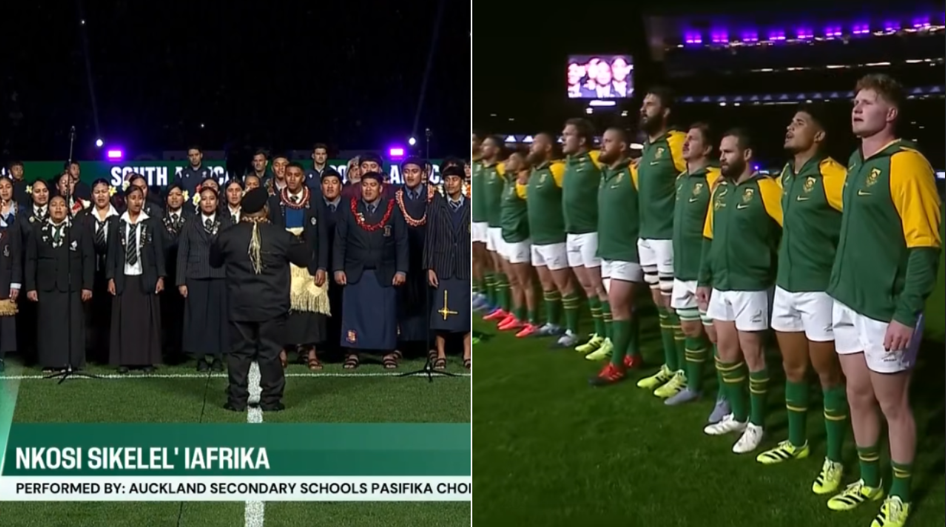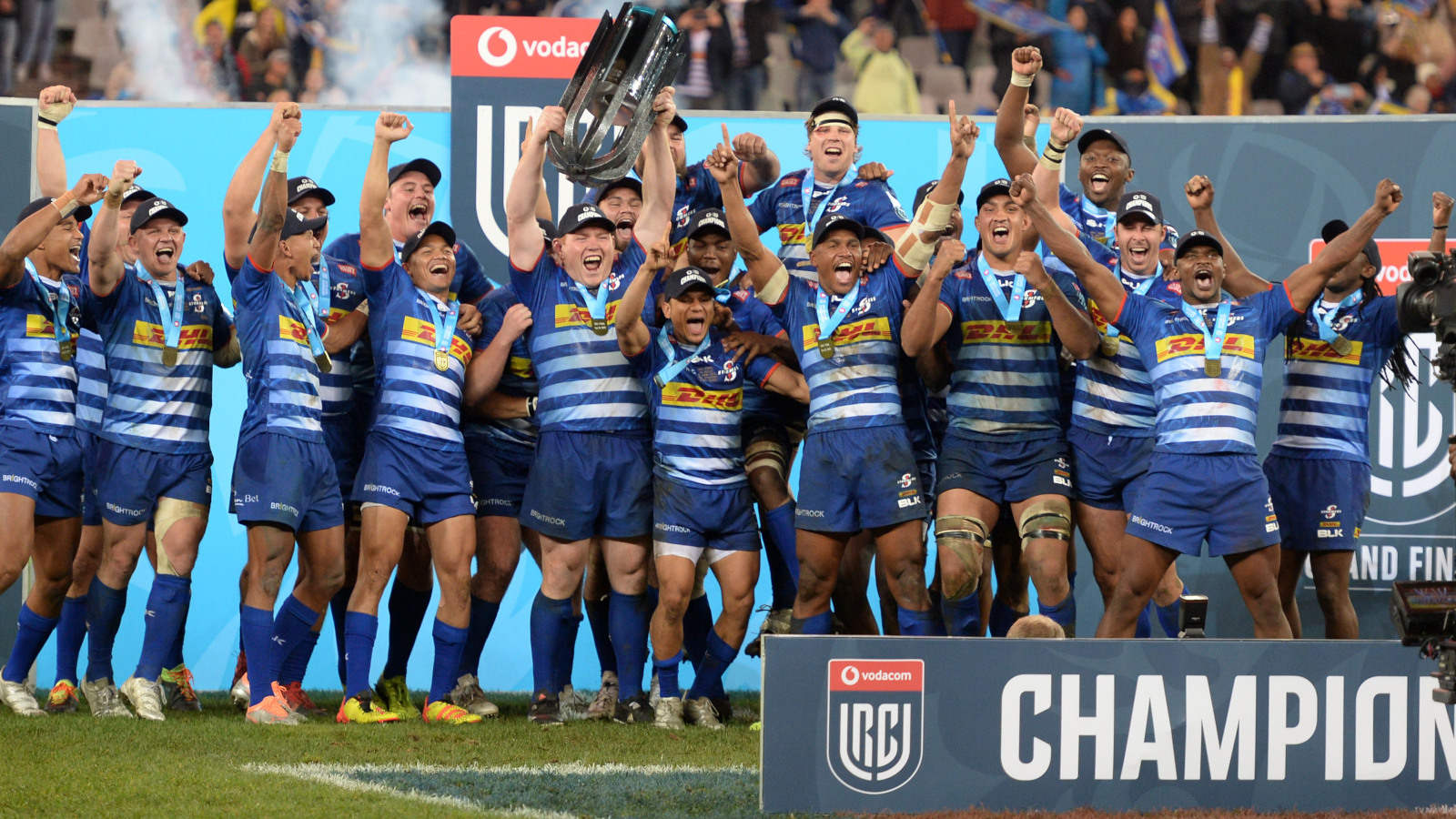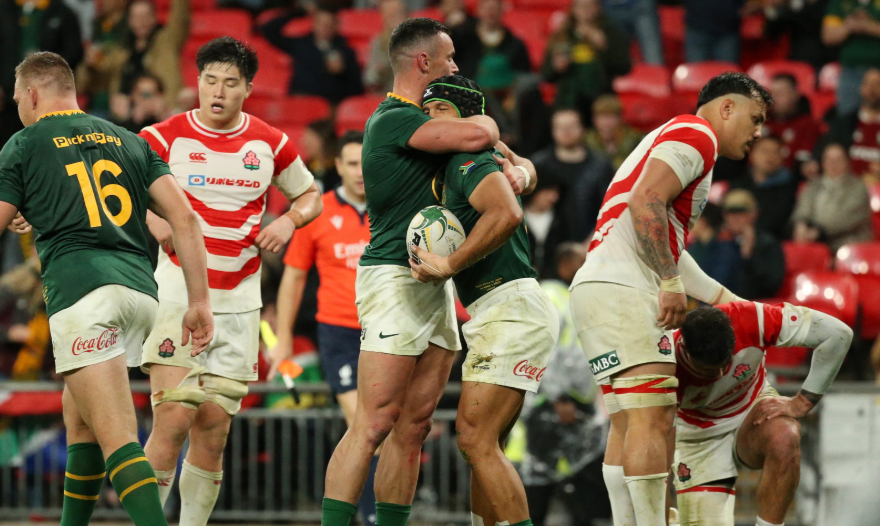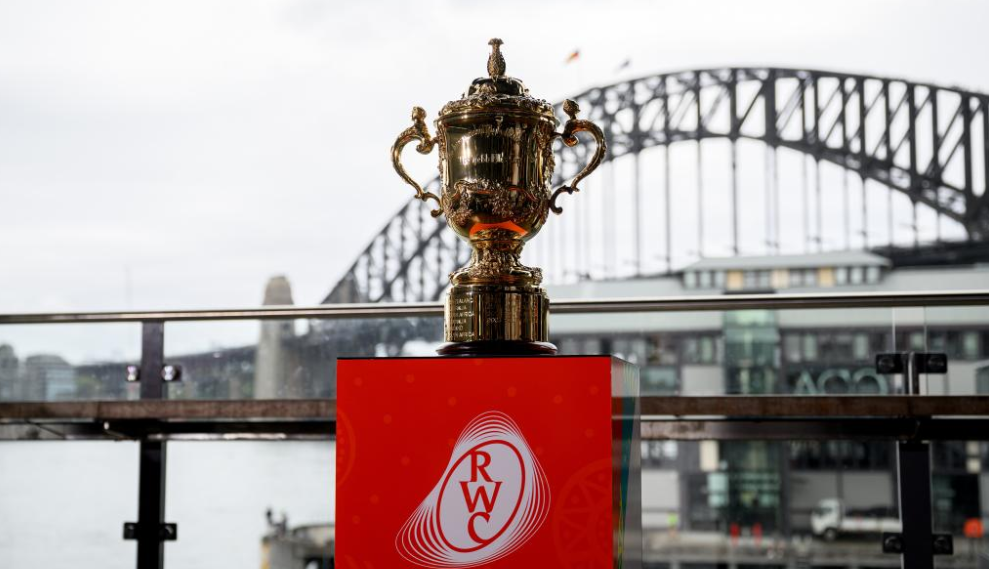You could feel it before the first whistle. The All Blacks against the Springboks always hums with energy, but at Eden Park in the 2025 Rugby Championship it wasn’t the haka or the pre-match fireworks that set the tone. It was schoolkids. Specifically, the Auckland Secondary Schools Pasifika Choir, stepping onto the turf and singing South Africa’s national anthem, Nkosi Sikelel’ iAfrika, in a way that shook the stadium and everyone inside it.
Now, Blindsided Rugby Man doesn’t often talk about anthems. Normally we’re too busy dissecting scrum angles, moaning about the breakdown, or trying to make sense of what on earth the TMO just spotted. But this… this was different. The moment belongs in the same conversation as Jonah Lomu’s rampage in ’95, Siya Kolisi lifting the Webb Ellis in 2019, or BOD’s hat-trick in 2000. Yes, it was that powerful.
Eden Park as a Fortress
First, understand where this went down. Eden Park is more than grass and seats. It’s a fortress where the All Blacks rarely lose. It’s the stadium that haunted Wallaby dreams for decades and where South Africans know every victory is a piece of history chiselled in stone. On this crisp evening, the Boks were desperate to turn over the old foe, and New Zealand wanted to remind everyone that fortress Eden still stands. The context was perfect: Rugby Championship points on the line, a sold-out Auckland crowd, and two squads stacked with heavy artillery.
And then, before Kolisi and and Test centurion Ardie Savea led their teams through the tunnel, the choir walked out.
When the Anthem Became the Story
It started softly. Then the harmonies swelled. You’ve heard Nkosi Sikelel’ iAfrika before, but you haven’t heard it like this. Pasifika voices, trained and proud, filling Eden Park with reverence and weight. The sound was crisp, soulful, and bigger than the stadium itself. For nearly 120 seconds, the most famous rugby ground in New Zealand was completely still. No chants. No beer chatter. Just silence, awe, and a rising tide of emotion.
South Africans in the stands – many wrapped in green and gold – were moved, and some to tears according to anecdote and rumour. Even Kiwis found themselves with goosebumps, staring at a group of teenagers who somehow managed to honour a foreign anthem in a way that made it feel like part of their own culture. On TV, cameras caught Bok players blinking hard, lips trembling.

Why It Hit So Hard
Because rugby isn’t just a game – it’s a cultural transaction. And when an Aotearoan choir took ownership of South Africa’s most sacred sporting hymn, it meant something.
- Pasifika presence in New Zealand rugby: Pacific Island communities make up a huge percentage of rugby in Aotearoa. They’ve given the All Blacks stars like Lomu, Joe Rokocoko, and Savea. Their voices gave Nkosi not just power but credibility – people who know what it means to live with heritage, struggle, and pride sang that anthem.
- Shared struggle and spirit: South Africa’s anthem was born in resistance, forged in the fight for dignity. Pasifika families in New Zealand know about resistance too—migration struggles, cultural identity, economic hardship. That shared undercurrent gave the song extra bite.
- Timing and theatre: Before the biggest test match of the year, nobody expected a choir to deliver the knockout blow. And yet they did. The match hadn’t even started, and we’d already seen history.
The Reaction From the Players
When the final notes dropped, the players clapped. Not polite clapping – the real kind. Kolisi was visibly emotional despite his concrete hard facial expression. It was one of those moments where rugby reminds us it’s a game built on values as much as violence.
Then, of course, came the violence. A Springbok-All Black test doesn’t disappoint. Scrums buckled. Tackles rattled ribcages. The lineout was a war zone. Try-saving tackles drew roars. And yes, Eden Park lived up to its billing: a cauldron for gladiators.
But even as the match unfolded, the choir’s song lingered. Commentators couldn’t help but circle back to it. Fans on social media clipped it, shared it, and labelled it the greatest anthem performance ever at a test. Some South Africans went as far as to say it surpassed versions back home. That’s not a small statement.
This is the part casual fans don’t always get. Yes, rugby is about tries, mauls, kicks, and trophies. But it’s also about moments like this – moments when culture, respect, and humanity take centre stage. Rivalries don’t survive 100+ years unless they’re built on mutual acknowledgement. And on Saturday night in Auckland, the Pasifika Choir built a bridge across the Indian Ocean, one note at a time.
Imagine being a 16-year-old choir member, standing at Eden Park, watching Siya Kolisi or Eben Etzebeth fight tears because of something you sang. That’s the power of rugby. That’s the power of culture.
When we look back at the 2025 Rugby Championship, the scoreline will matter – because All Blacks vs Boks always matters. But in the wider story, it’ll be a footnote to the choir. That’s how seismic it felt. This wasn’t just pre-match theatre; it was a statement. A reminder that rugby’s greatest strength isn’t just bone-crunching contact but its ability to connect people across oceans and histories.
Blindsided Rugby Man signs off with this: before the first scrum collapsed, before the first boot laced into touch, before the first TMO check ruined our blood pressure – the Pasifika Choir won the night. And for once, everyone in Eden Park, Bok and Black alike, was on the same side.




